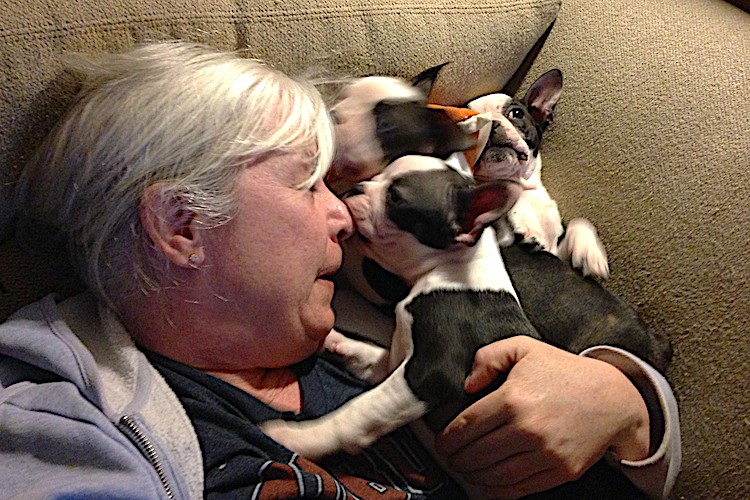Breeder Rescuer Partnerships
Let’s think about breeder rescuer partnerships.
I believe reputable, responsible breeders can help us be better rescuers.
This Post Isn’t About Puppy Mills, Purchasing Puppy Mill Dogs At Auction, or Paying Breeders for Their Retired Dogs.
I am not talking about rescues that attend puppy mill auctions, pay breeders thousands of dollars to “rescue” dogs from the puppy mill life, or those quiet purchases rescues have with breeders who want to retire their backyard stock.
That is a different topic for a different day from probably a different writer.
The AKC Breeder Rescuer Partnership
The American Kennel Club claims to be active in rescue, and that through the various National Breed Clubs also participate in rescue. ” …it’s often breeders and fanciers that are at the heart of these rescues, rehabs and rehomes” the AKC writes on their website.
I’m not talking about those types of breeder rescuer partnerships either.
Rescuers Need To Partner With Reputable Breeders For Their Expertise.
But…. Adopt Don’t Shop!!
I get it. “Adopt, don’t shop” is a popular mantra.
Exhausted from our frantic efforts to save every homeless animal in shelters and on the street, we believe that somehow, if we can slow the inflow of new dogs and cats, maybe we can take a vacation or finally replace our chewed up sofa.
If Breeders Would Just Stop Breeding!!
We blame all/most breeders, pleading with them to stop breeding for just a cotton-pickin’ minute.
Plenty of dogs are euthanized, we argue, that could’ve been saved if not for their cute puppies wooing adopters away from shelters and rescue organizations. Mixed breed “mutts” are the most excellent pets, after all.
Accusing reputable breeders of not helping to solve the overpopulation problem is ridiculous, but that’s a topic for another post, another day.
There is strong arguement for breeder rescuer partnerships.
Not only are reputable breeders THE expert in dog pregnancy, whelping, and rearing puppies, they are actually one of the expert professionals in breed health, behavior, and temperament. It only makes sense to me that we appoint a reputable breeder to our board of directors or that we have a reputable breeder on standby as a mentor to any foster dog home that is caring for dog pregnancy, birth, and rearing.
Our Society Still Prefers Pure-Bred Puppies
National Puppy Day was this past Saturday. Did you participate by sharing pictures of puppies all over social media? I did!
National Puppy Day was founded in 2006 by Colleen Paige as a way to help save orphaned puppies and educate the public about the horrors of puppy mills. Read more about National Puppy Day!
What ended up on my Instagram feed was a stream of pure-bred puppies. I saw not one story (‘cept my own posts) about orphaned puppies or puppy mills.
As a whole, I believe our society still prefers pure-bred puppies.
It’s easier to find a purebred puppy from a breeder than a rescue agency. We rarely had purebred Boston terriers in rescue and when we did, they were either a mixed breed or they had some congenital defect like cleft palate, hypospadias, or hydrocephalus and a breeder reached out to us for assistance.
Many people believe that purebred puppies will grow up into healthier, well-behaved dogs and that rescue dogs are more apt to be behavioral problems or have expensive health issues. That may be a true statement – if you get your puppy from a reputable breeder who breeds for health and temperament and who rears their puppies using a sound protocol.
Problem is, the average wait for a puppy from a reputable breeder can be upwards of 2 years or longer.
How Do Rescue Puppies Measure Up To Well-Bred, Well-Raised Pure-Bred Puppies??
Well, how do we measure up? How well are we raising our rescue puppy litters all by ourselves?
How do we raise our mixed breed rescue puppies so they are as desirable as a pure-bred puppy?
We Need To Establish Breeder Rescuer Partnerships and Mentorships
We are going to have to learn a thing or two from the professionals. Breeder rescuer partnerships can help us raise better puppies.
The Litter From Hell

A rescue organization with which I’ve volunteered took in a pregnant mama dog one winter. She originated in an area of the state where they don’t have any foster homes. I’ve always wanted an expert foster home for pregnant dogs, and at the time, the agency didn’t have one.
The woman who’d found the dog offered to foster her. 6 beautiful puppies were born just a few days later. The tiniest puppy faded away a couple of days after birth (not uncommon) and 5 healthy puppies remained.
Mama and her puppies were given free rein in an upstairs, unfurnished bedroom. The foster mom visited the room often to provide care, cleaning, and attention.
Fast forward to 11 weeks of age when it was way past time to divide this litter in to smaller litters. I, in true knee-jerk fashion, arranged for all 5 puppies to come to my house. I told the rescue we all could figure it out from there.
O.M.G.
It was horrible. These were horrible puppies. (kidding/not kidding)
Because of an overly quiet environment, these puppies behaved like baby birds when mama bird arrived at the nest. They erupted in howls, screeching at the top of their lungs at any sound they believed came from me approaching the “nest.”
For more on “I Fostered A Litter Of Puppies And Survived”, read here.
In contrast – Puppy Culture
Near the time my litter was finding their forever homes, one of my friends who fosters dogs accepted a litter of newborn puppies and had already purchased the Puppy Culture puppy rearing program. She documented on Facebook some of her litter’s journey as the puppies grew and met their milestones using this program. Her puppies sounded much different than my litter of loudmouths.
She repeated the program a year later with a different litter of puppies. Same results.
A different rescue organization I follow also purchased the Puppy Culture program. They, too, saw a dramatically different presentation in their puppies: calm, confident, less fearful, easier to train.
It got me thinking.
If rescue individuals and agencies are going to raise and re-home tens of thousands of puppies every year, what kind of puppies are we raising? Shouldn’t we provide well-raised puppies like reputable breeders do?
Would a puppy rearing program used on rescue litters of puppies provide the same benefit it provides reputable breeder puppies? Would it help reduce rehomings and returns? Would our adopters be more satisfied with their puppy adoptions? Would we be helping to raise better pets?
Could breeder rescue partnerships function in a mentorship relationship to enhance the development of a rescued litter?
Could a puppy rearing program be implemented on older puppies we rescue or is it only effective when implemented in the first days of a puppy’s life? (Puppy Culture says it can be used with older puppies, I don’t have any personal experience to opine one way or the other.)
Puppy Culture Was Developed By A Breeder
It makes sense that a reputable breeder would be the developer of this program.
She has opinions you might not like, such as – she believes that for most dogs, there is more evidence to support keeping a dog intact than removing their reproductive capabilities. She makes her statements to responsible pet owners, not those who choose to allow intact pets access to one another in reckless abandon.
But there’s no denying her program (or similar) has a place in animal rescue.
Disclaimer: The link to the Puppy Culture website is below. I am not an affiliate for Puppy Culture and I do not receive any monies for mentioning their product. I’m just impressed by it.
Developing a Relationship With A Breeder
Now, before you get your panties in a twist and go there – I’m not – nor would I ever – suggest that you seek the assistance of a breeder so that your rescue organization can breed puppies for whatever reason.
There is an argument for that, by the way, from some well-respected animal behaviorists who believe we are spaying and neutering really good mutts with really good DNA that would make really good pets while at the same time adopting out way to many marginal dogs in an effort to “save them all.”
But I digress.
What I am saying is that breeder rescuer partnerships can possibly offer rescued puppies a better upbringing and a better adult life.
How can a breeder help a rescue organization? I have some ideas:
Breeder Rescuer Partnerships Can Help Support The Gestation and Whelping Of Litters
Who knows more about pregnancy and whelping of litters? A breeder.
Yes – many times a mama dog does just fine whelping all by herself. But, what if?
What if’s happen all the time in rescue. Usually, we don’t know the sire of an unborn litter of puppies, and we don’t know the prenatal care of the female. We have a higher rate of problem pregnancies and problem deliveries than when those litters were planned and nurtured from the time of conception.
Problem deliveries can cause a host of problems before, during, and after the puppies are born. Reputable breeders know about these problems and risks. I’d venture to say many would be happy to at least consult with you on developing protocols.
I’ve known a former breeder to get in her car in the middle of the night to assist a rescuer with whelping or setting up to bottle feed newborn orphans after the mama dog died. Not only did she have supplies she donated; her knowledge and experience saved the lives of an entire litter of chihuahuas.
I’ve known a few well-meaning, excited-to-help foster homes who took on a high-risk pregnant dog with no experience and no mentor to help. Some experienced emergencies and tragic outcomes.
I know of a breeder who gladly took in an orphaned singleton puppy from a rescue and added it to a litter in her kennel. That is the benefit of having a breeder rescuer partnership!
Nearly All Of Our Pregnant Dogs and Litters are High-Risk
Knowing we rescue high-risk populations, it makes sense to invite a very knowledgeable breeder who uses best practices to be on your rescue team. I’d venture to say, if you regularly rescue pregnant dogs, you might think about electing a reputable breeder on your extended board of directors. Just sayin’.
Reputable Breeders Have Supplies, Supplies, and More Supplies
From beautifully designed whelping boxes (We are used to having to rely on a used kiddie pool from someone’s backyard) to the RIGHT nursing bottles, (those in the know don’t use the bottles you get from PetSmart) supplements, heat sources, safety tips, care for mama and all the supplies, observation skills, and knowledge needed to raise a litter – shoot. I don’t know anyone in their right mind who would take on a newborn litter for the first time without coaching from an expert.
You aren’t going to get your most accurate answers from a Facebook group or Google.
Breeder Rescuer Partnerships Allow for Coaching Through Rearing Protocols.
Reputable Breeders who use puppy rearing protocols are knowledgeable and skilled on how and when to introduce experiences to growing puppies.
Reputable breeders know puppies. They know the physical attributes and limitations of a puppy’s musculoskeletal system, how a puppy’s neurological system develops, how their socialization needs emerge, when to introduce noise, people, toys, obstacles, just to name a few things that pop off the top of my head.
As a rule, I’m not sure most rescuers do. I KNOW I don’t.
The Rescuer Expertise May Be Limited
We seem to know how to deworm, buy shots from the feed store, and arrange for a pediatric spay/neuter. We pat ourselves on the back because we saved a life and prevented more from being born. We believe everything that happens to the puppy as an adult dog falls to the new owner.
That’s harsh? I’m sorry.
Our rescued puppies deserve the same opportunities for enriched rearing as reputable breeder puppies who are raised with a puppy rearing protocol. All we have to do is reach across the aisle and seek their guidance.
Louder? OK.
OUR RESCUED PUPPIES DESERVE THE SAME OPPORTUNITIES AS REPUTABLE BREEDER PUPPIES.
Older Puppies and Short-Term Fostering
Puppy rearing protocols – like Puppy Culture – seem to offer some benefit to older puppies. Individuals purchasing puppies from breeders who don’t provide enriched rearing or individuals getting a puppy from a rescue or shelter are using some of the components of this program and they are seeing some results.
I mention this because – not only can we start enrichment anytime with our rescued dogs, but we can share this information with our adopters and allow them to begin to work with their puppies as soon as they are adopted.
Good rearing keeps puppies out of the shelter. I believe it.
Finding A Breeder Partner
Responsible/Reputable is Relative
What makes a breeder responsible and reputable? Depends upon who you ask.
For me, a responsible breeder not only breeds for health and personality, but they also raise their puppies to be as confident as they can be. So a breeder’s CV would include just how and when they meet the puppy’s developmental milestones and exposures and experiences.
I’m not settled on where to send rescuers to look for a breeder partner. Everyone wants to send people to the AKC site, and I think word-of-mouth referrals are much better. Some experienced dog trainers will have a database of reputable breeders for their clients.
In summary, I believe in giving our rescued dogs the best we’ve got, every time. As rescuers, as adoption and placement specialists, we have a HUGE responsibility to the dog, the new family, and the community at large.
Partnerships with other professionals brings unlimited benefit to rescue work, and breeder rescuer partnerships may be one of the most important relationships we can create.
When we raise litters of puppies, we have a duty to provide those puppies the best opportunity to develop and grow into well-balanced dogs. Socialization skills are fairly set at 16 weeks; If we keep our puppy litters until they are 9 weeks of age, we have before us a huge chunk of time to influence their development, and a duty to educate the new owner as we pass the baton to them.

Puppy Rearing Programs Available for Purchase
AviDog – Transformational Puppy Rearing
Puppy Culture
Popular Posts
- HOW TO CHOOSE A DOG RESCUE AGENCY
- ULTIMATE GUIDE TO FOSTERING: 10 SKILLS YOU NEED
- VOLUNTEER IF YOU CANNOT FOSTER




